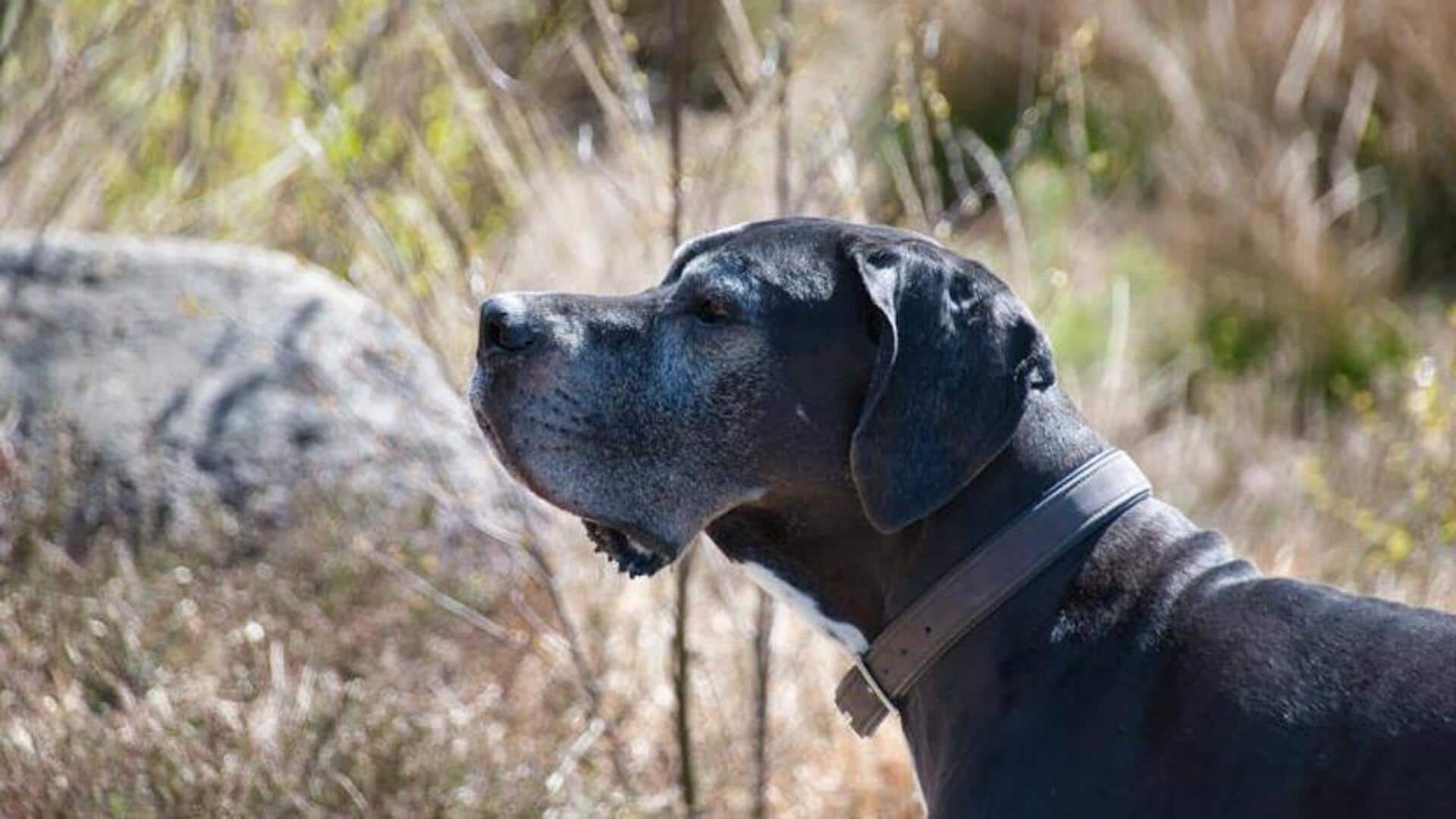
Preventing bloat in Great Danes: Essential tips
What's the story
The Great Dane, a breed distinguished by its majestic size and amiable nature, is a cherished companion known for its gentle temperament. These towering dogs are loving family members but are also at risk for a serious condition known as bloat. It is imperative for owners to be proactive and attentive in their care to prevent this life-threatening situation.
Tip 1
Recognize the risk factors
Great Danes, with their deep chests, are particularly prone to bloat, a dangerous condition. Key risk factors include stress, hasty consumption of food, and engaging in intense physical activity close to meal times. To lower the chances of bloat, it's important for owners to closely observe and manage their dog's eating pace and stress levels, as well as their exercise habits around feeding periods.
Tip 2
Implement a feeding strategy
To avert bloat in your Great Dane, distribute their food intake into smaller meals throughout the day instead of one large serving. While elevated feeding stations were previously advocated, newer research indicates they might heighten bloat risk. Always consult your veterinarian for tailored advice. Ensure constant access to fresh water but restrict its consumption immediately before and after eating to minimize complications.
Tip 3
Encourage proper eating habits
Encourage your Great Dane to eat slowly by providing bowls designed to prevent rapid food consumption. Steer clear of dog foods where oils or fats are listed among the top four ingredients, as these can heighten the risk of bloat. Opt for high-quality kibble that is the right size for your dog, which can help minimize the amount of air they swallow while eating.
Tip 4
Monitor exercise routines
Maintaining a Great Dane's health includes proper exercise timing to prevent bloat. Vigorous activities should be avoided one hour before and two hours after meals, allowing the dog to digest properly. During this sensitive timeframe, if exercise is necessary, opt for gentle walks. This careful approach helps mitigate the risk of bloat while keeping the dog active and healthy.
Tip 5
Regular veterinary check-ups
Regular veterinary visits are crucial for Great Danes, as veterinarians who specialize in large breeds can detect early signs of bloat. During these checkups, discuss with your vet the option of prophylactic gastropexy. This surgical procedure can be a preventative measure against bloat and is especially recommended for high-risk breeds, potentially reducing the likelihood of this life-threatening condition.